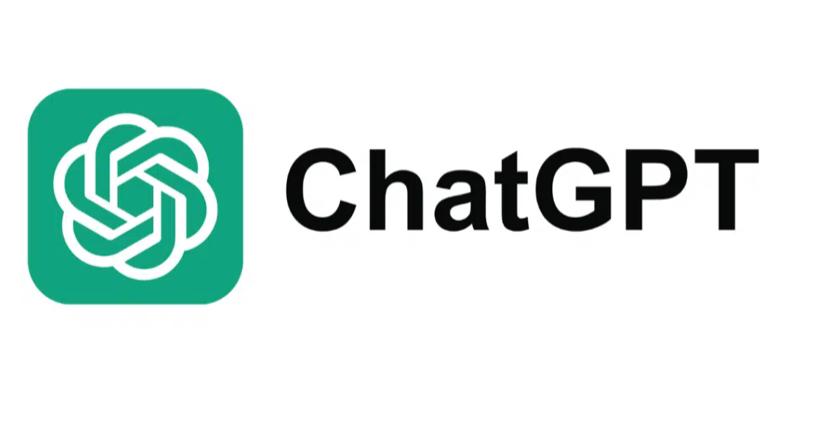•Cardoso: Institutional resilience crucial for continent’s future, says CBN focused on rebuilding trust with markets, partners
•Oramah: $250 billion mobilised into Africa, unveils economic, trade reports
•Kale: Despite slowed growth, Africa shielded from global trade wars, others
James Emejo in Abuja
Vice President Kashim Shettima, yesterday, said African Export-Import Bank (Afrieximbank) had grown from a regional trade financier to a continental development anchor, having mobilised and disbursed over $100 billion and $52 billion across Africa and Nigeria, respectively, since its establishment in 1993 in Abuja.
Speaking in Abuja, at the opening of the 2025 Annual Meetings of Afreximbank, with the theme, “Building the Future on Decades of Resilience,” Shettima said the country will continue to work with the bank to deepen its partnership and align more closely with Africa’s development agenda.
Represented by Special Adviser to the President on Economic Affairs (Office of the Vice President), Dr. Tope Fasua, Shettima commended Afreximbank’s leadership, under Professor Benedict Oramah, for the unwavering commitment to Nigeria and Africa, at large.
Governor of the Central Bank of Nigeria (CBN), Mr. Olayemi Cardoso, while commending its milestone, underscored the importance of institutional resilience as a vital foundation for building a strong and lasting economic future for Africa.
Cardoso urged Afreximbank to play a role in addressing the rising trade protectionism and shift in global dynamics.
President/Chairman, Afreximbank, Oramah, said over the past 32 years, the bank had mobilised over $250 billion into Africa, empowered industries long neglected by conventional financiers, and served as a lifeline during crises – from the COVID-19 pandemic to commodity shocks and broken supply chains.
Group Chief Economist and Managing Director of Trade Intelligence at Afreximbank, Dr. Yemi Kale, said despite the difficulties Africa had faced in recent years, the continent had shown resilience, stating that though growth has slowed, Africa has not been as severely affected as many other parts of the world.
Shettima identified Afreximbank’s transformative footprints in the country to include African Trade Centre, commissioned in Abuja, which now served as a nucleus for policy innovation, trade facilitation, and business intelligence.
He said other footprints of the bank in Nigeria included African Medical Centre of Excellence, which opened a few weeks ago, providing world-class oncology, cardiology, and haematology services, reducing over $1 billion spent annually on medical tourism.
Shettima also acknowledged the African Quality Assurance Centres in Kaduna and Ogun states, strengthening the export readiness of Nigerian products, the $300 million export-manufacturing initiative, strategically located in Cross River, Enugu, Imo, and Kano states, to catalyse industrial clusters, and the pivotal $3 billion intra-African petroleum trade facility, enhancing Nigeria’s energy security and supporting domestic refining capacity.
He said, “These are not merely projects, they are strategic investments in resilience, in sovereignty, and in shared prosperity.”
The vice president said the meeting’s sub-theme, “Thirty-two Years of Resilient Growth and Transformation,” invited deep reflection on “where we’ve been, what we’ve endured, and more importantly, where we now aspire to go”.
He pointed out that the past three decades had “taught us that resilience is not just survival—it is the capacity to adapt, to lead, and to reinvent”, adding, “Afreximbank has embodied this ethos.”
He said in times of global liquidity crunch, Afreximbank provided emergency trade financing, and in the aftermath of COVID-19, it rolled out the Pandemic Trade Impact Mitigation Facility (PATIMFA).
He stated, “Today, it is shaping continental policy through PAPSS, the Africa Trade Gateway, AfrexInsure, and its new Concessional Finance Window.
“Now, as Africa faces the consequences of global fragmentation, commodity transition, and climate disruption, the challenge is clear: we must go beyond resilience to renewal.”
In his remarks, Cardoso emphasised that resilience must be deliberately engineered through strategic foresight, crisis preparedness, sound governance, and stakeholder trust.
He said Afreximbank had grown into one of Africa’s most influential development finance institutions, and remained a true pillar of continental transformation.
Cardoso said Afreximbank had “filled strategic gaps, anticipated future needs, and consistently shown up for Africa in the moments that matter most”.
He praised the bank for growing its capital assets from $750 million at inception to $40 billion in 2024.
However, Cardoso said Afreximbank had a role to play in addressing the rising trade protectionism and shift in global dynamics.
The CBN governor said the central bank was focused on rebuilding trust with markets, citizens, and partners.
Cardoso stated, “We recognise that institutional credibility is the anchor of effective monetary and financial policy.
“Our efforts are focused on restoring clarity, reinforcing consistency, and deepening confidence, not as an end in itself, but as a foundation for a resilient future. This is the essence of institution-building.”
He stressed that as global systems evolved, Africa must rise with confidence, adding that Afreximbank had shown that “when clarity of purpose meets bold execution, Africa does not just survive, it leads. We don’t just react to external shocks; we design new models. We don’t merely participate in global systems; we help shape them”.
Cardoso said, “Over three decades, Afreximbank has emerged as more than an average financial institution. It has become a trusted partner, a convener of ambition, and a catalyst for change, shaping strategy, enabling execution, and elevating African agency across the globe.
“Indeed, resilience is not just about surviving shocks. It is the ability to absorb disruption, adapt with foresight, and emerge stronger and more self-reliant. And there is no more fitting institution to carry this message than Afreximbank, a true continental engine of innovation, courage, and continuity.”
Cardoso stressed the need to build resilient institutions, stating, “Resilience is not accidental. It is engineered, through deliberate choices, strong foundations, and a mind-set oriented toward the long term.”
He said, “First, it takes strategic foresight: the ability to look beyond the noise of the present and invest in solutions for the next decade, not just the next quarter. Resilient institutions are always thinking ahead.
“Second, it requires crisis preparedness. Institutions that survive and thrive are those that plan for disruption before it arrives. They build buffers, diversify risks, and maintain discipline, especially when others are distracted by short-term gains.
“Third, clear communication is essential. In moments of uncertainty, people follow clarity. Resilient institutions speak honestly, act transparently, and stay close to their stakeholders, particularly when the road is rough.”
The CBN governor added, “None of this can work without robust systems and governance. Great ideas cannot succeed on weak foundations. Resilience demands sound decision-making processes, strong data, functional infrastructure, and the humility to learn and course-correct along the way.
“As we celebrate 32 years of Afrexim’s remarkable impact, we must also turn our eyes to the future, a future that calls for even greater ambition and clarity of purpose.
“A future defined by green growth that is African-led and African-owned. By digital transformation that connects our people and our markets, not just to the world, but to one another. By food and energy sovereignty that shields our nations from external shocks and secures our development pathways.
“And by a dynamic private sector that drives opportunity, innovation, and inclusive prosperity at scale. Afreximbank has helped us dream big. Now, it is time to deliver big.”
Cardoso commended Oramah and his team for their unwavering commitment to reshaping Africa’s economic trajectory, stating that their work continues to inspire hope, confidence, and collective action across the continent.
Oramah said over the past 32 years, the bank had mobilised over $250 billion into Africa, empowered industries long neglected by conventional financiers, and served as a lifeline during crises, from the COVID-19 pandemic to commodity shocks and broken supply chains.
In his welcome remarks, Oramah said the story of Afreximbank remained one of “defiance against doubt, of institution-building in the face of resistance, and of steadfast belief in Africa’s potential”.
He said, “Besides, this event holds against a backdrop of global headwinds, including de-globalisation, rising protectionism, and geopolitical uncertainty. Yet, it is precisely this uncertainty that reminds us of the imperative to build strength from within, charting a future that is unapologetically African and globally impactful.
“It is expected to be a future where Africa’s youthful population, rich natural resources, expanding intra-African trade, and technological shifts create a new development paradigm.
“The meetings this year are structured to tackle these themes head-on: examining our past, reimagining our institutions, and strategising for a fractured and changing, de-globalising world order.”
Oramah added, “As we gather policymakers, development finance institutions, the private sector, civil society, and academia, our goal is to create not only a platform for dialogue but also a roadmap for action.
“Together, we will explore how Africa has been asserting greater control over its development destiny and how Afreximbank and our sister institutions can continue to be anchors of sustainable socio-economic transformation.”
The meeting also witnessed the launch of Afrexim flagship Trade and Economic Outlook Report, alongside the Annual Trade Report.
Speaking while unveiling the publications, Group Chief Economist and Managing Director of Trade Intelligence at Afreximbank, Dr. Yemi Kale, said the reports served to inform policymakers and stakeholders on current conditions across the African continent.
Kale said the reports examined trends across countries, highlighted challenges for the current year and the medium term, and offered guidance on how African nations could leverage global and regional developments to their advantage.
Kale said 2025 and 2026 were shaping up to be particularly difficult years for the global economy, adding that ongoing global trade wars, heightened geopolitical tensions, and other factors have implications for Africa—whether in terms of aid, trade, or foreign direct investment.
He said, “These global shifts will inevitably impact the continent.”
According to him, the reports assess developments in both the African and global economies, understand their implications for Africa, and advise governments, businesses, and institutions on how to respond—both in addressing challenges and seizing opportunities.
Kale said despite the difficulties Africa had faced in recent years, the continent had shown resilience. He said though growth had slowed, Africa had not been as severely affected as many other parts of the world.
He said, “One key reason is our relatively limited integration into global economic systems. What was once seen as a weakness is now proving to be a buffer.
“For example, the recent tariffs introduced by the U.S. are expected to have a limited impact on Africa, as only about give per cent of Africa’s trade is with the U.S.
“While some countries might experience minor direct effects, overall, the continent remains somewhat insulated from these global shocks.
“Indirectly, there could be challenges, such as rising interest rates or inflation that may affect debt sustainability.
“However, we do not expect Africa to be significantly impacted by current global macroeconomic conditions.”
Kale stated, “We believe Africa’s resilience will continue. Growth is expected to be stronger this year compared to last year.
“We also anticipate global inflation will ease, and trade volumes will rise—especially intra-African trade, which research continues to show as a critical path to sustainable development for the continent.”




